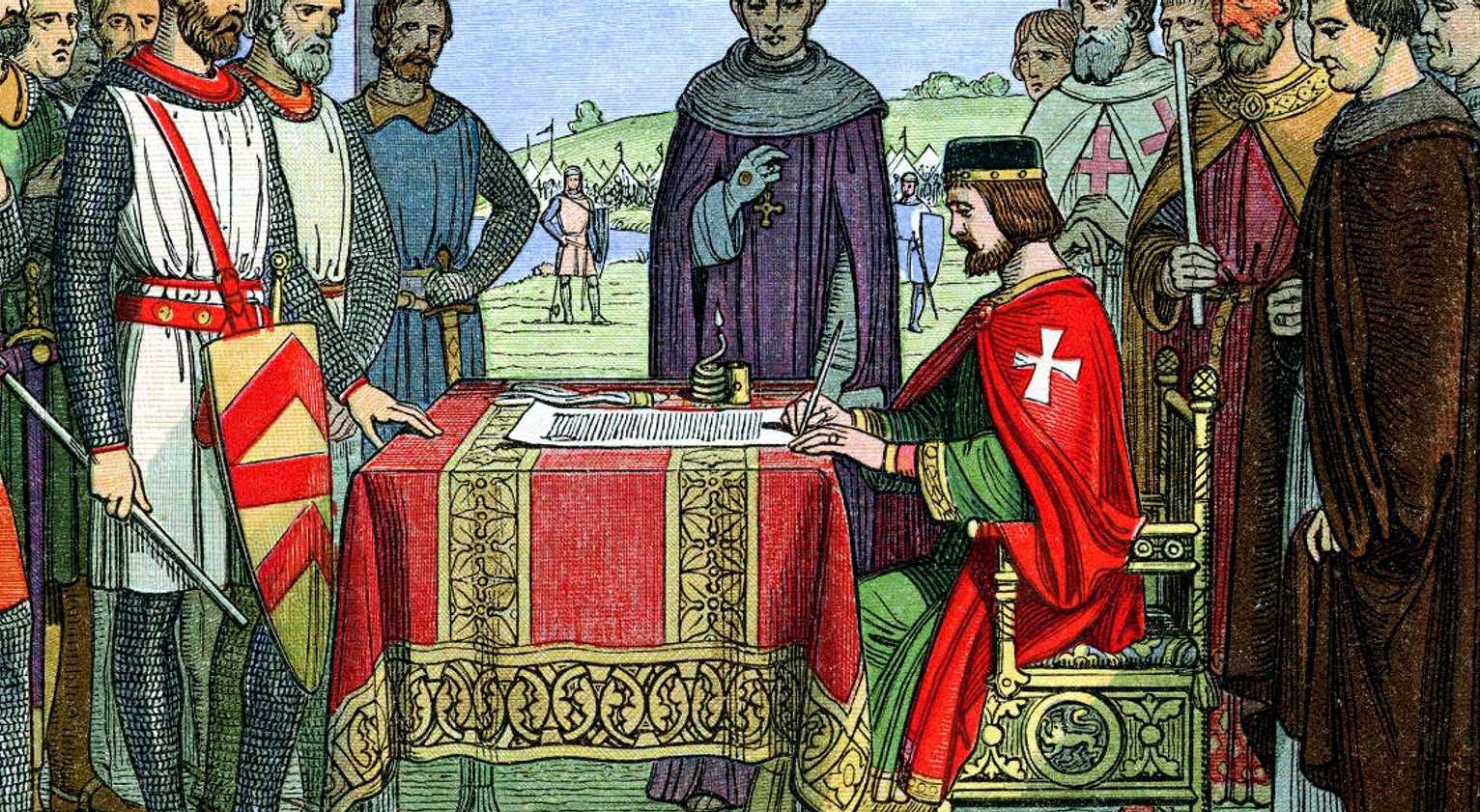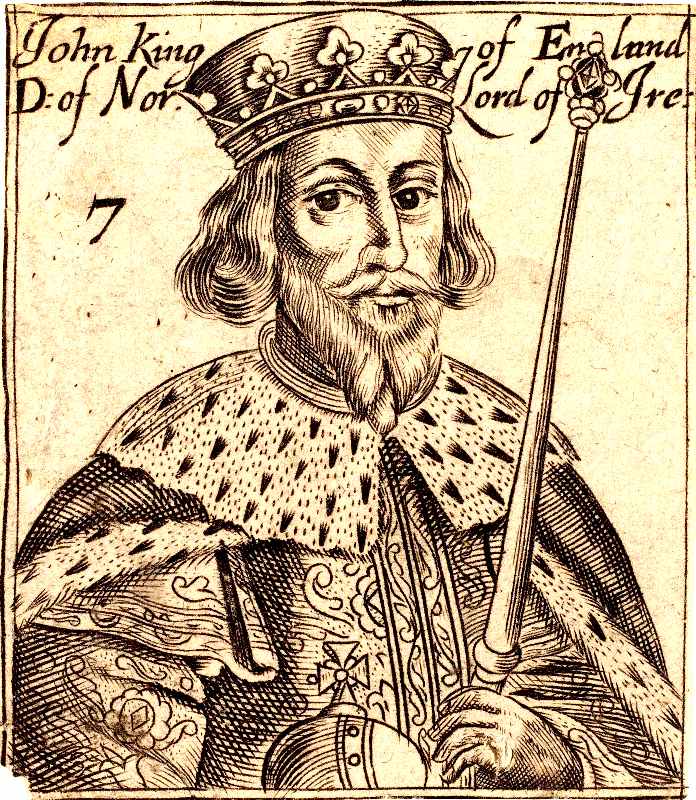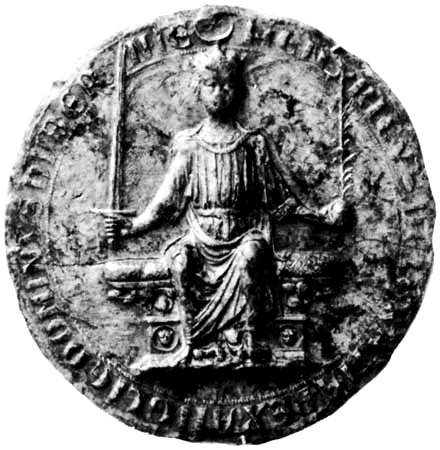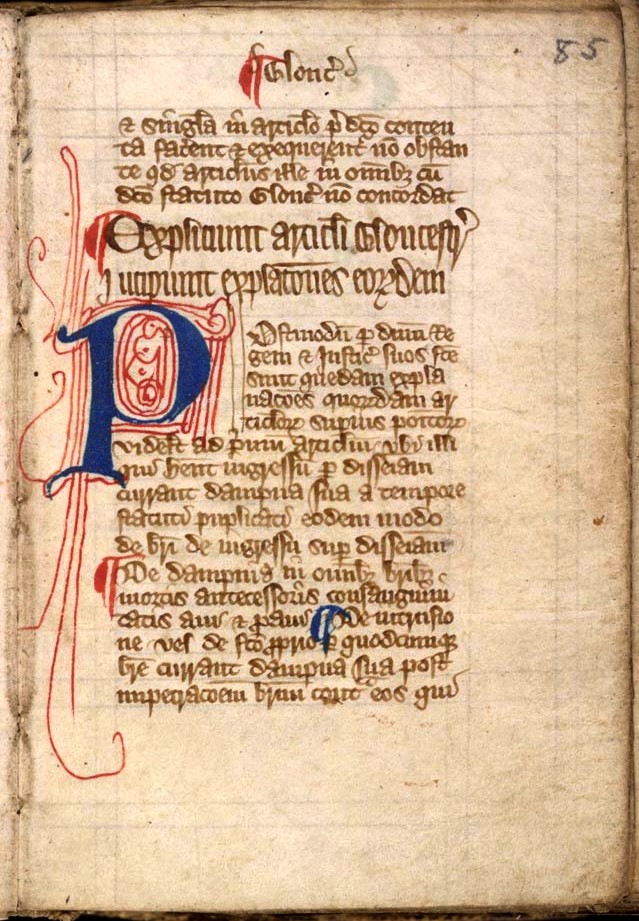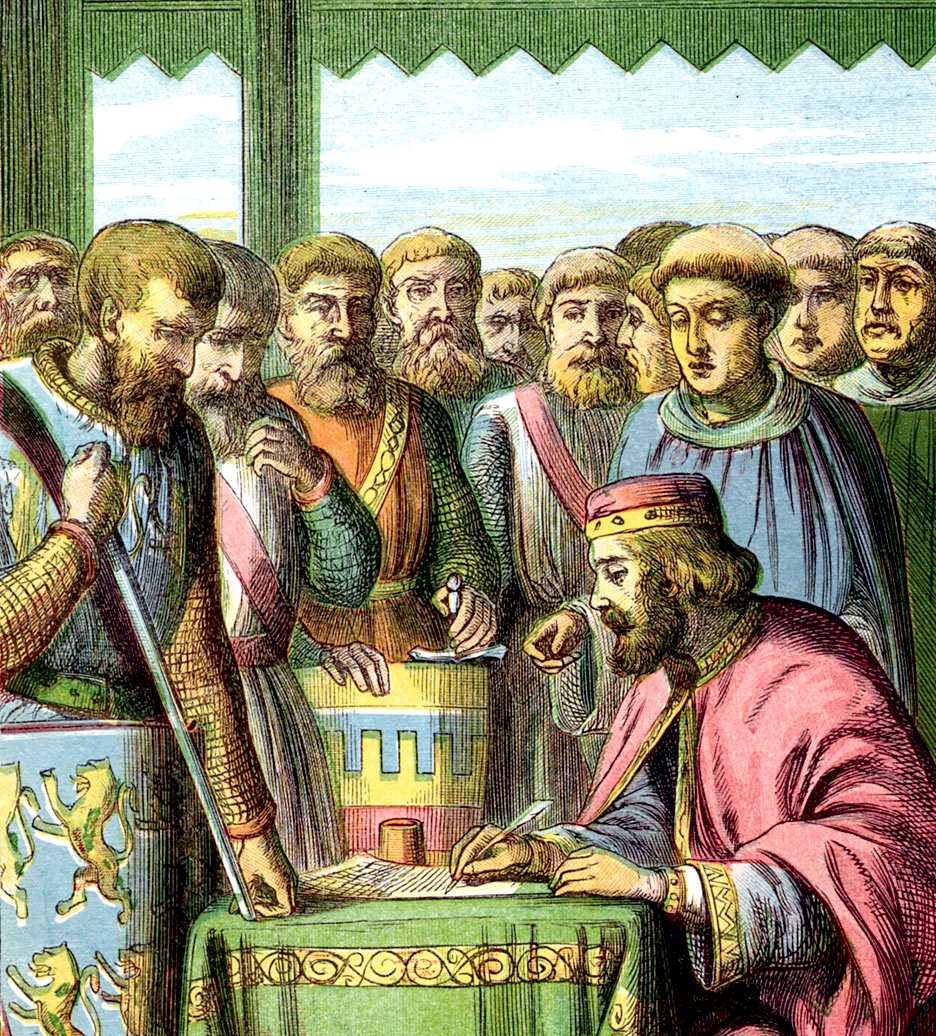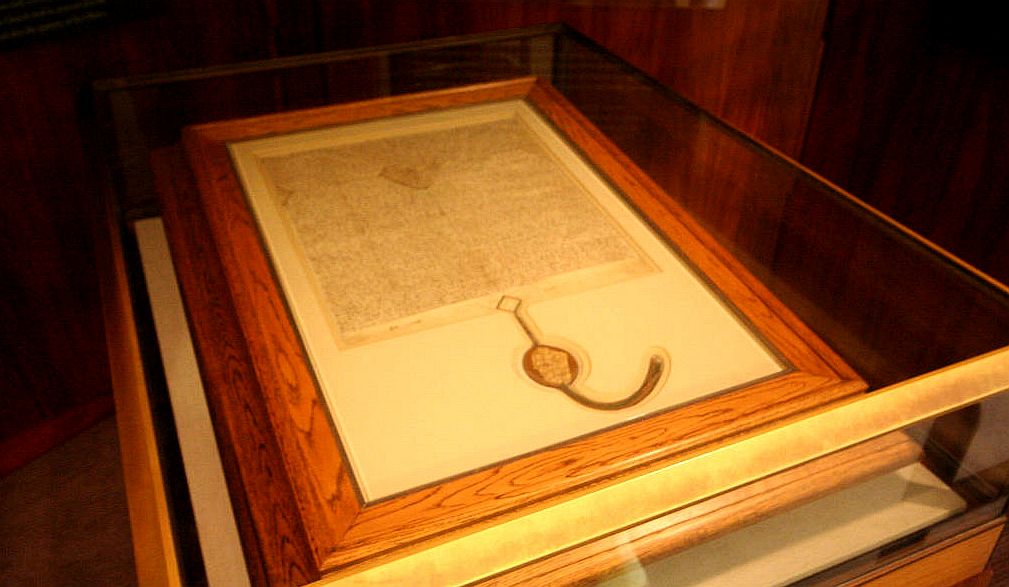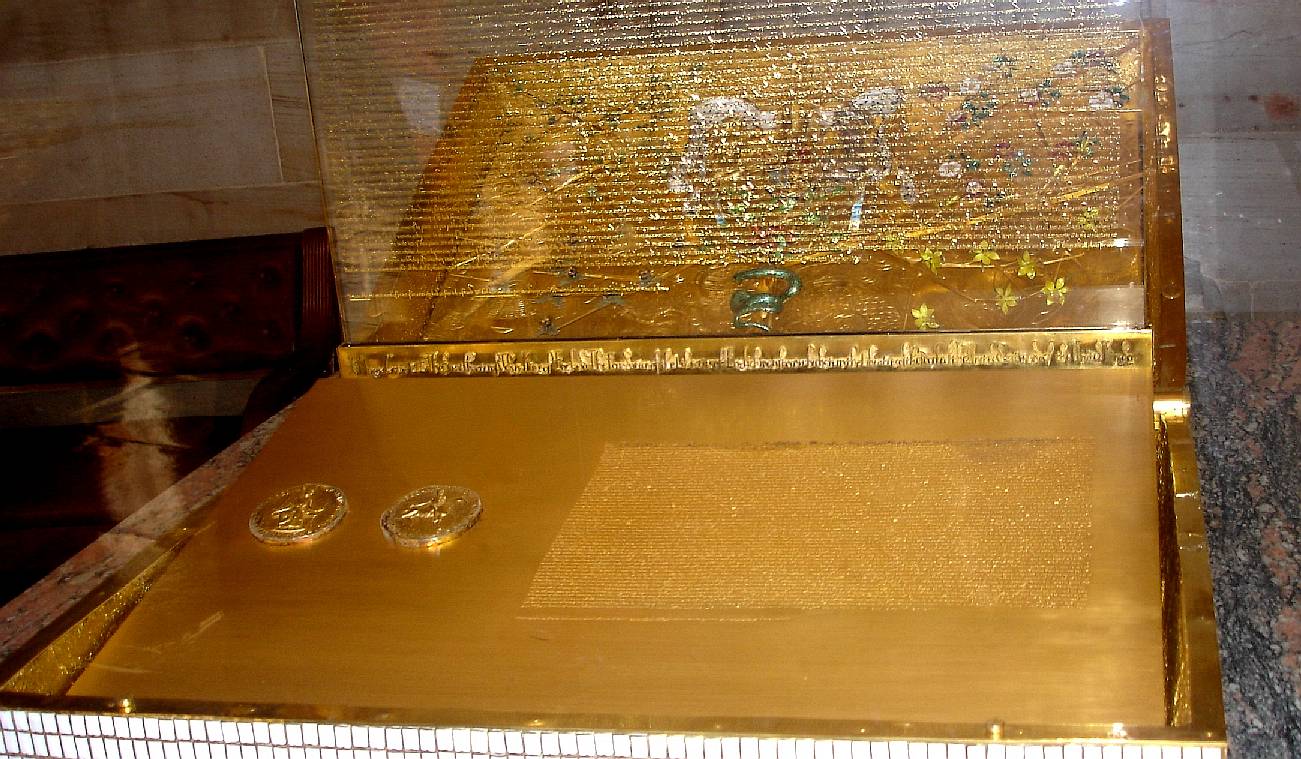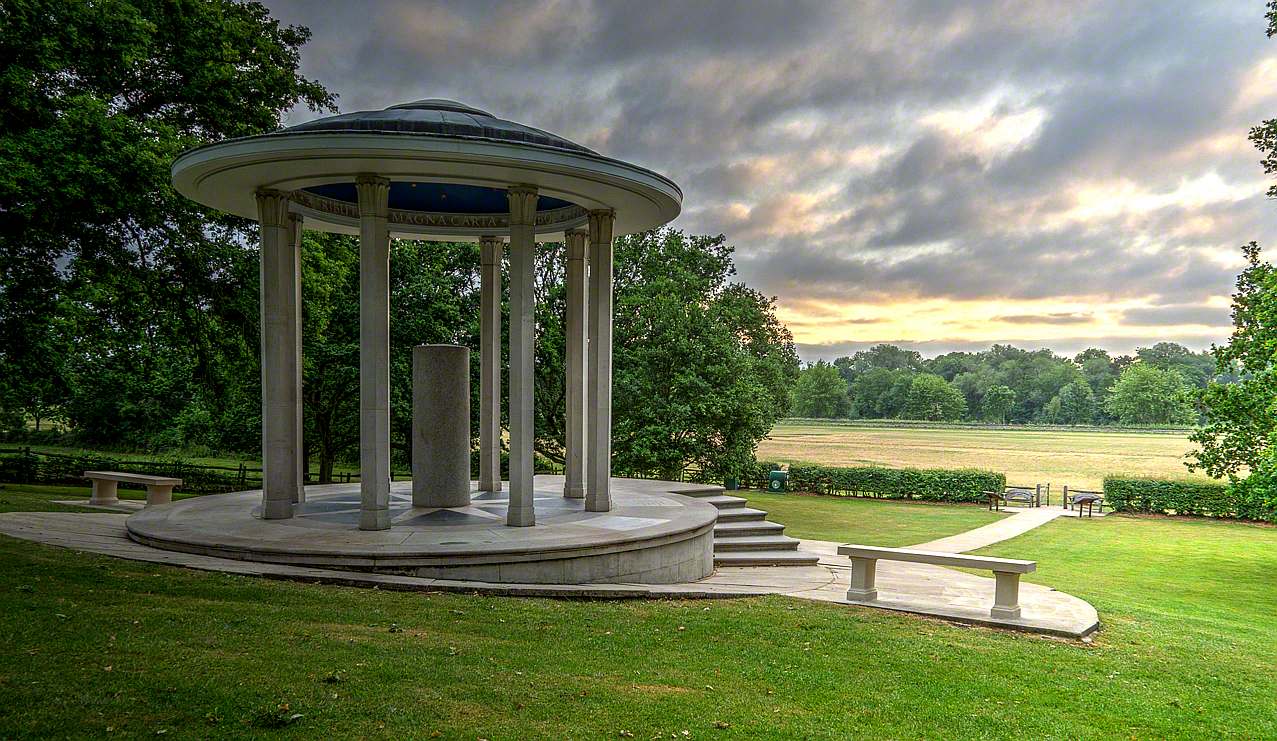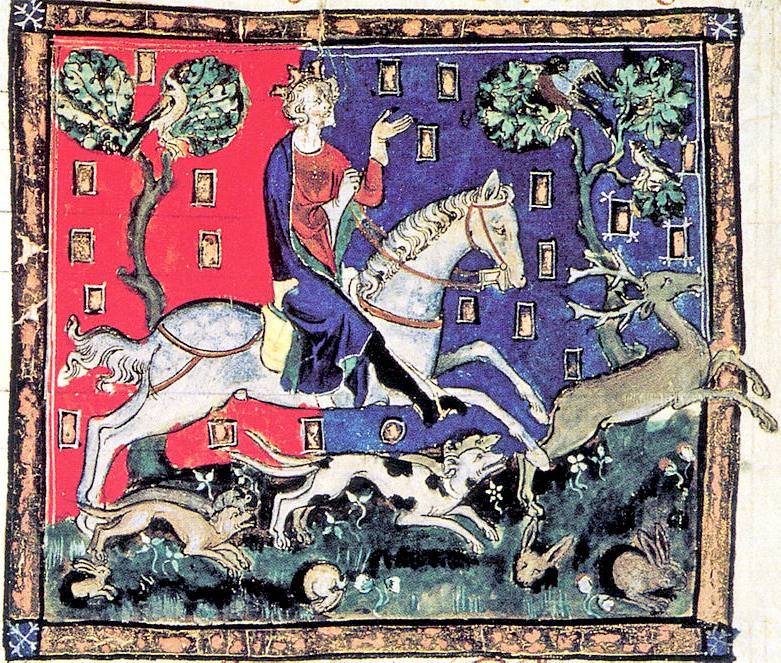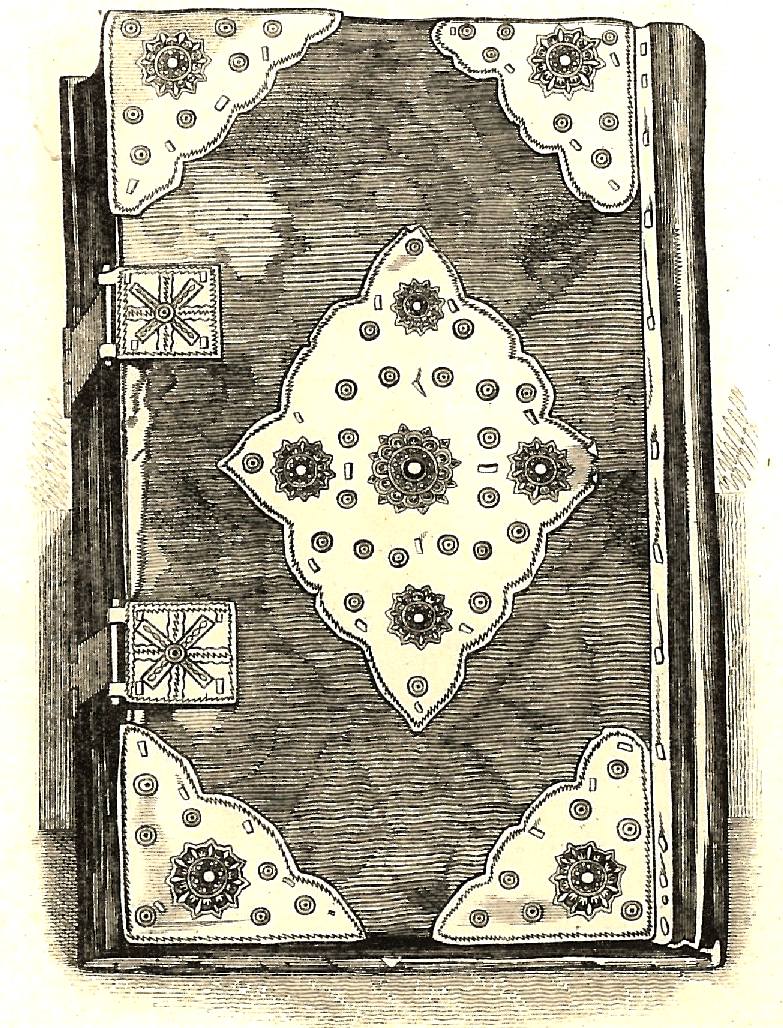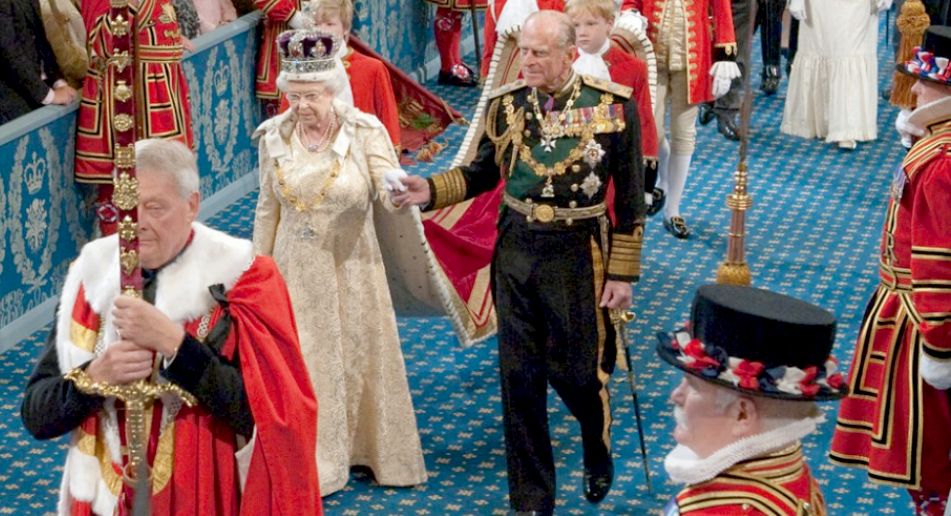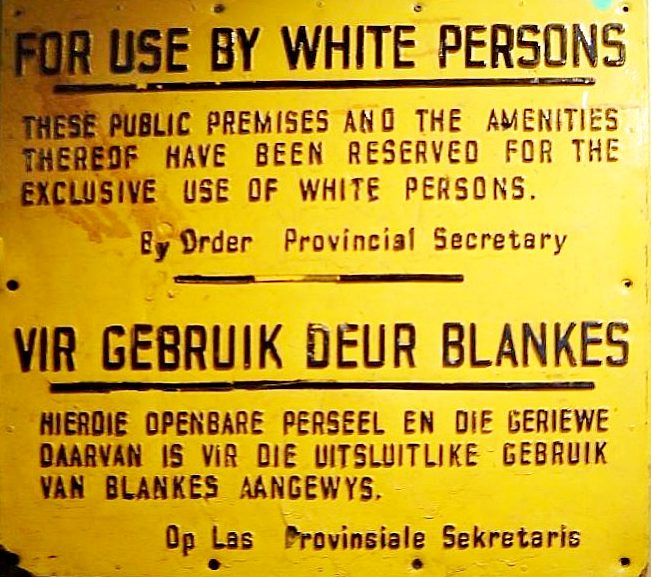|
MAGNA CARTA
HOME | CASE STUDIES | HISTORY | LAW | POLITICS | RIGHTS | SITE INDEX
|
|
SALISBURY CATHEDRAL - Magna Carta (Latin for "Great Charter") is one of the most celebrated documents in English history. In 2009 UNESCO entered Magna Carta into the Memory of the World Register – the list of the world’s most important documents. The best preserved of only four surviving copies is displayed in the Chapter House at Salisbury Cathedral with its own exhibition.
British law is confusing because there is no Constitution; no set of rules cast in stone that everyone must abide by - and the Royals appear to want to keep it that way to retain control with peerages, knighthoods and other honours, plus of course control of the Courts via the appointment system.
The Magna Carta is an interesting document, telling of the transition from Royal dictators absolute, to diluted powers conferred on other powerful landowners. It was not designed to give rights to the common man, but did so more or less by accident. And so Human Rights began to evolve - as they are still evolving today.
It is a slow and painful process, no less bloody that battles of World War One and Two in the suffering such evolution causes to the victims of crime, much of which is occasioned by local authorities as hidden agendas, rather than lawless citizens - of which there are plenty. But it is the calculating nature of civil servants and serving law enforcement officers that is most dangerous. Such abuses of public office must be stamped out.
There is no difference between the Petitioners of 1997 involving Wealden District Council and Sussex police, compared to the Barons and King John.
NOBODY IS ABOVE THE LAW
- NOT EVEN THE KING OR QUEEN OF ENGLAND
England was ruled by King John, the third of the Angevin kings. Although the kingdom had a robust administrative system, the nature of government under the Angevin monarchs was ill-defined and uncertain. Much as the British system tends to deny justice to victims of local authority abuses.
John and his predecessors had ruled using the principle of vis et voluntas, or "force and will", taking executive and sometimes arbitrary decisions, often justified on the basis that a king was above the law.
Many contemporary writers believed that monarchs should rule in accordance with the custom and the law, with the counsel of the leading members of the realm, but there was no model for what should happen if a king refused to do so.
This was the beginning of a democracy where the public gain protections from the state - or at least that should be where societies all over the world are headed.
MEANING OF MAGNA CARTA
Magna Carta is Latin for ‘great charter’ and the term was first used in 1217 to distinguish it from the Charter of the Forest, a document that also set out limits on the king’s administration, this time of the royal forest, areas of the country set aside for royal hunting and subject to much harsher laws and restrictions.
Both charters set out what the king could and could not do. In other words, Magna Carta set out the laws which the king and everyone else had to follow for the first time.
Copies of Magna Carta were sent out to be read out in each county of England so that everyone knew of its existence. There was no internet or broadband in those days.
KING
JOHN - The Magna Carta was signed in June 1215 between the barons of Medieval England and King John. ‘Magna
Carta’ is Latin and means “Great Charter”. The Magna Carta was one of the most important documents of Medieval England.
CLAUSES REMAINING IN ENGLISH LAW
1) the freedom of the English Church,
2) the "ancient liberties" of the City of London (clause 13 in the 1215 charter, clause 9 in the 1297 statute), and
3) a right to due legal process (clauses 39 and 40 in the 1215 charter, clause 29 in the 1297 statute).
In detail, these clauses (using the numbering system from the 1297 statute) state that:
Of clause 29 (XXIX) the policy makers have been whittling this down so much in recent years that little remains of Article 6 and the right to a Level Playing Field, also known as Equality At Arms.
THE
MODERN LEGACY, IS THAT NOT MUCH REMAINS, SAVE AS SYMBOLIC MARKER
Its perceived guarantee of trial by jury and other civil liberties, for example, led to
Tony
Benn's reference to the debate in 2008 over whether to increase the maximum time terrorism suspects could be held without charge from 28 to 42 days as "the day Magna Carta was repealed". Although rarely invoked in court in the modern era, in 2012 the Occupy London protestors attempted to use Magna Carta in resisting their eviction from St. Paul's Churchyard by the City of London. In his judgment the Master of the Rolls gave this short shrift, noting somewhat drily that although clause 29 was considered by many the foundation of the rule of law in England, he did not consider it directly relevant to the case, and the two other surviving clauses actually concerned the rights of the Church and the City of London.
800TH ANNIVERSARY CELEBRATIONS
CANBERRA
AUSTRALIA - A replica of the is seen here in Parliament House,
Canberra, Australia. The Magna Carta was issued in June 1215 and was the first document to put into writing the principle that the king and his government was not above the law. It sought to prevent the king from exploiting his power, and placed limits of royal authority by establishing law as a power in itself.
The document is a fitting reminder that Australian law derives from
English law, by way of a throwback to the days of the British Empire.
Australia is now part of the Commonwealth.
WASHINGTON
DC - This is another replica of the Magna Carta. There were
re-issues of 1216, 1217, and 1225
One of the first acts of the council of John’s young successor, Henry III, was to reissue the Magna Carta on November 12 in the hope of recalling men to their allegiance to the rightful king. The charter of 1216 was considerably shorter than its predecessor—42 clauses versus 63 in the 1215 document—as the council had omitted clauses dealing with purely temporary and political matters as well as those that might limit its own power to raise money or forces to carry on the war.
The church, while keeping a general promise of freedom, lost its specific guarantee of free election to office. Even in that moment of danger, the council did not forget one main purpose of the charter: to provide a definitive statement of feudal law. It tried to address points in doubt, such as specific matters of inheritance law and the precise year at which an heir should attain his majority (age 21). Instead of the “form of security,” the council stated that all omissions were postponed for future consideration. They were never replaced.
HISTORIC BACKGROUND
RUNNYMEDE, LONDON - King John signing Magna Carta on June 15, 1215, at Runnymede meadow, River Thames, England. Runnymede is an otherwise obscure field lying next to the Thames in Berkshire between Windsor and Staines. Charters granting rights and liberties to individuals and groups were issued by lords throughout society, including the king. They were written records of someone’s action and were authenticated with a wax seal. Although its form was normal for the time, Magna Carta was the product of political crisis and an uprising of the leading men of England.
......
LINKS & REFERENCE
https://www.britannica.com/topic/Magna-Carta https://www.parliament.uk/magnacarta https://www.historylearningsite.co.uk/medieval-england/magna-carta/
DESCRIPTION OF ENGLAND - The Domesday Book was commissioned in December 1085 by William the Conqueror, who invaded England in 1066 at Hastings in East Sussex. This Great Survey was conducted as a means to collect taxes more effectively to further enslave the lower classes, a situation the persists all the while the United Kingdom does not have a Written Constitution, to keep British subjects under the control of the monarchy with laws that are flexible and a system that is designed to ensure that the little man is always subdued.
FAIR USE NOTICE
This site contains copyrighted material the use of which has not always been specifically authorized by the copyright owner. We are making such material available in our efforts to advance understanding of environmental, political, human rights, economic, scientific, and social justice issues, etc. We believe this constitutes a 'fair use' of any such copyrighted material as provided for in section 107 of the US Copyright Law. In accordance with Title 17 U.S.C. Section 107, the material on this site is distributed without profit to those who have expressed a prior interest in receiving the included information for research and educational purposes.
For more information go to: http://www.law.cornell.edu/uscode/17/107.shtml. If you wish to use copyrighted material from this site for purposes of your own that go beyond 'fair use', you must obtain permission from the copyright owner.
This site is protected under Article10 of the European Convention on Human Rights and Fundamental Freedoms.
EUGENICS - Unbelievable though it may seem, overt policies were legal until only recently. Covert eugenics policies are rife in many counties, with Britain being one such country that allows council and police officers, banks and other institutions to indulge in an undertow of discriminatory practices that are very hard to prove.
British institutions target white as well as black citizens. The moment any person challenges a council they will find themselves on a black list. Kelly Davis was a builder of African descent who Wansdyke District Council did not like. Nelson Kruschandl is a European who Wealden District Council do or did not like.
You will find that council officers can be quite spiteful despite their positions of trust and duty of care. Once they have taken a dislike to a person who calls into question their judgment, then all departments are given the green light to pile on the agony.
They will call in favours from the police, TV licensing, social security and valuation agencies for starters. Eventually, this will spread to banks and building societies, councillors and members of parliament. Finally, these pillars of society will involve Interpol - and it all starts because you might have the temerity to ask for an explanation as to a decision that is wrong. In one case we know of it started with a tree preservation order that should never have been made.
The object is to apply as much pressure as possible to a person to get them to move out of their district or to sell property cheaply to a favoured developer/occupier. The council officers will arrange for countless Gestapo style visits to premises no matter what the cost to the tax payer.
|
|
This page is © Copyright 2019. We cannot be held liable for the accuracy of the information provided. All users should therefore research matters for themselves and seek their own legal advice and this information is provided simply by way of a guide. Horse Sanctuary Trust UK.
|
